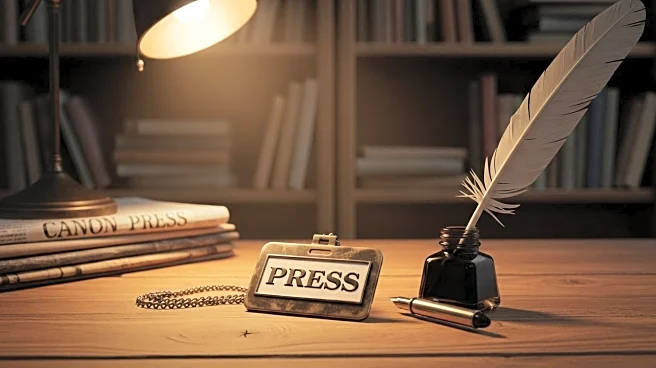What's Happening?
Defense Secretary Pete Hegseth has introduced new regulations for journalists covering the Department of Defense, requiring them to sign a pledge not to gather or report any information, including unclassified data, without prior authorization. This policy, outlined in a 17-page document, threatens to revoke press credentials for those who do not comply, effectively barring them from the Pentagon. The move has been criticized by media organizations as a violation of press freedom. Hegseth's decision aligns with previous actions under the Trump administration aimed at restricting media access, including limiting reporters' movement within the Pentagon. The National Press Club and other media advocates have condemned the policy, arguing it undermines independent journalism crucial for public accountability.
Why It's Important?
The new policy could significantly impact the transparency and accountability of the U.S. military by restricting journalists' ability to report independently. This move may hinder the public's access to critical information about military operations, defense spending, and decision-making processes that affect national security. Media organizations argue that such restrictions could lead to a less informed public and reduce scrutiny of military actions. The policy reflects broader tensions between the Trump administration and the press, raising concerns about the erosion of First Amendment rights and the role of a free press in a democratic society.
What's Next?
Media organizations, including NPR, are expected to challenge the new policy, potentially leading to legal battles over press freedom and access to government information. The Pentagon Press Association is reviewing the policy, and further responses from media advocacy groups are anticipated. The outcome of these challenges could set precedents for how government agencies interact with the press and manage information dissemination. Stakeholders will likely monitor the situation closely, as it may influence future policies regarding media access to government institutions.
Beyond the Headlines
The policy raises ethical questions about the balance between national security and press freedom. It may prompt discussions on the role of journalism in holding government accountable and the potential consequences of limiting media access to sensitive areas. The situation could lead to broader debates about the transparency of government operations and the public's right to know.









